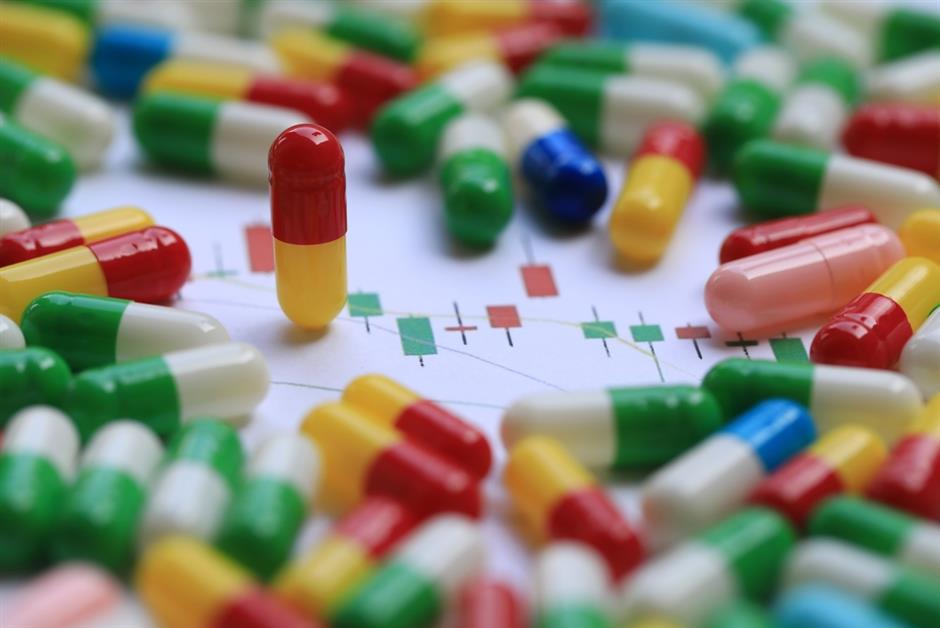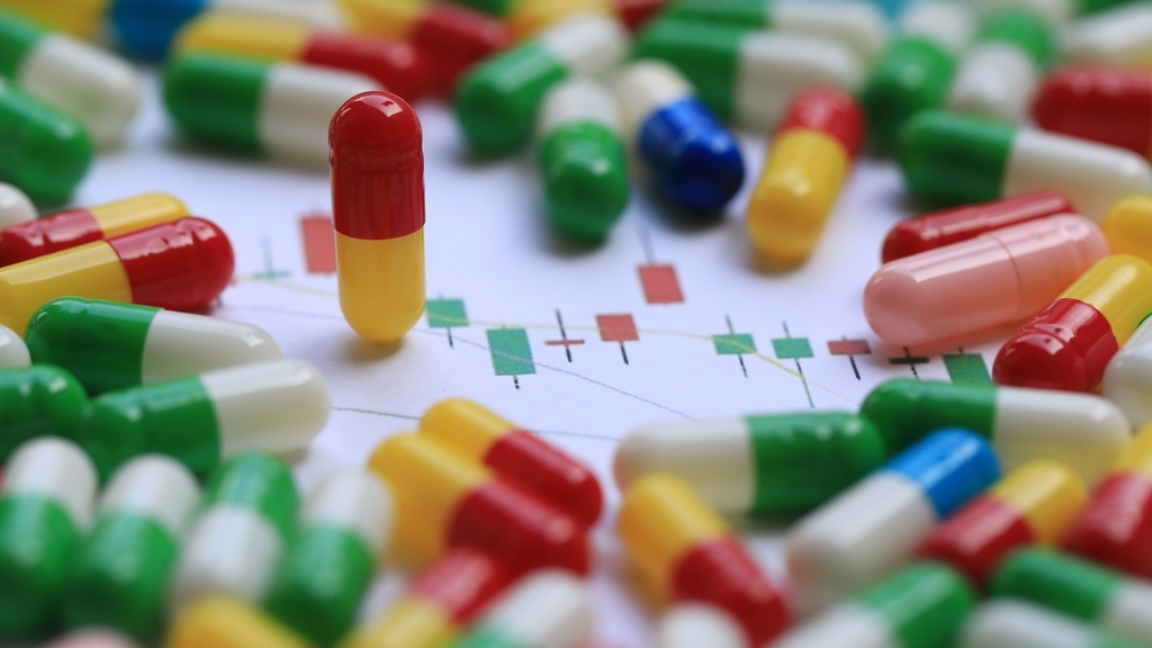

Flush with capital and ambition, China's biotech startups are racing to go global. But the transition from laboratory to pharmacy shelves is long and hard. Despite multibillion-dollar foreign licensing deals and pipelines filled with late-stage clinical drug trials, listed pharma company earnings in the first-half were mixed.
The results reflect a sector in the throes of transition. Some pharma companies gained commercial traction, edging into profitability, while others remained mired in losses, largely on huge research and development costs.
The challenge ahead will be execution. With large cash balances, expanding research and development teams, and increasing international partnerships, China's biotech firms are well poised for future growth, but that will depend on whether their innovative drugs can secure lasting footholds in overseas markets.
Here's a look at how some of the industry leaders fared in the most recent round of results.
Akeso Biopharma
Akeso Biopharma, based in Guangdong Province, posted strong top-line growth in the first half, with revenue rising 38 percent year-on-year to 1.41 billion yuan (US$194 million) and commercial sales, net of distribution, increasing 49 percent to 1.4 billion yuan.
Still, the company reported a net loss of 570 million yuan, widening from 239 million yuan a year earlier on a 23 percent increase in research and development spending to 731 million yuan. It also reported a loss of 192 million yuan related to its stake in Summit Therapeutics.
The company's two flagship immunotherapy drugs - cadonilimab and ivonescimab - were recently added to China's national reimbursement drug list, boosting revenue.
This year marks a corporate shift for Akeso, which takes its name from the Greek goddess of healing. The company is now relying less on licensing income and more on internally driven commercialization. It is continuing to monetize its innovative pipeline through licensing deals to supporting near-term growth.
While profitability may remain somewhat distant, investor attention is focused on the global expansion of Akeso's key assets - particularly ivonescimab, which recently met "overall survival" endpoints in a global clinical trial, a critical milestone in overseas ambitions.
WuXi App Tec
WuXi AppTec, China's largest contract research and manufacturing player, reported a 21 percent rise in first-half revenue to 20.8 billion yuan and net profit attributable to shareholders of 8.56 billion yuan, double a year earlier.
Growth was supported by its chemistry division and its platform for oligonucleotides and peptides, reflecting strong demand for diabetes and weight-loss drugs. WuXi raised its full-year revenue guidance to between 42.5 billion yuan and 43.5 billion yuan.
InnoCare Pharma
Beijing-based InnoCare Pharma reported first-half revenue up 74 percent to 731 million yuan, driven by rising sales of its BTK inhibitor orelabrutinib and licensing revenue from its Prolium drug. The company narrowed its loss to 35.6 million yuan from 270 million yuan a year earlier.
The company continues to invest heavily in research and development, with nearly 450 million yuan spent in the first half, as it pushes several drug candidates into the final stages of testing. It's targeting not only cancer treatments, but also autoimmune diseases like multiple sclerosis and psoriasis - areas getting more attention from global pharma companies. With over 7.7 billion yuan in cash on hand and a strong pipeline, InnoCare is seen as one of China's most globally minded biotech startups.
BeiGene
BeiGene, now renamed BeOne Medicines, posted a 46 percent rise in first-half revenue to 17.5 billion yuan, with net profit of 450 million yuan. The Nasdaq-listed company specializing in cancer drugs raised full-year revenue guidance to between US$5 and $5.3 billion, forecasting positive cash flow for the first time.
Sales of its Brukinsa drug brand rose 56 percent to 12.5 billion yuan on strong demand in China, the US and Europe, reinforcing its position as a leading supplier of BTK inhibitors that move abnormal cells out of lymph nodes, bone marrow and other organs. Its Tevimbra drug had sales of 2.64 billion yuan.
The company, which has headquarters in China, Switzerland and the US, spent 7.28 billion yuan on research and development in the first six months as late-stage trials in oncology advanced.
Fosun Pharma
Shanghai-based drugmaker Fosun Pharma reported first-half net profit rose 39 percent from a year earlier to 1.7 billion yuan, though revenue fell 5 percent to 19.5 billion yuan. Earnings from innovative drugs exceeded 4 billion yuan. Research and development investment in the six months totaled 2.6 billion yuan, with a focus on therapeutics that include solid tumors and immune-inflammatory disorders. The Shanghai-listed company said it is expanding its pipeline into chronic cardiovascular and kidney diseases, and has granted overseas rights to a drug in development to UK biotech company Sitala Bio for a total consideration of up to US$675 million.
XtalPi
Shenzhen-based XtalPi said first-half revenue from drug development surged 615 per cent to 435 million yuan, with income turning to a profit of 141.6 million yuan from a year earlier loss of 251 million yuan. The company said it has collected an upfront payment of US$51 million, the first installment of a collaborative agreement with US-based DoveTree Medicines that could be worth up to US$5.9 billion. Under the agreement, DoveTree has exclusive global rights to develop and commercialize a portfolio of innovative therapeutics developed by XtalPi.

